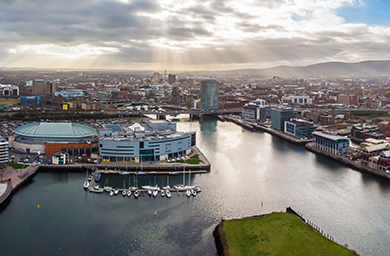Northern Ireland is home to 1.8 million people, with the capital Belfast the only cities with a population of more than 100,000. Its traditional industrial economy, most notably in shipbuilding, rope manufacture and textiles, has largely been replaced by services and it is consistently one of the least productive regions of the UK. Its output per hour in 2018 was 15.6% below the UK average, third from bottom among the 12 UK regions.
